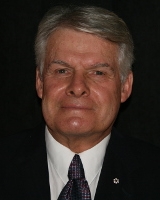Overview
15th Biennial Symposium on Violence & Aggression
June 15-17, 2014
University of Saskatchewan
Saskatoon, SK
The Biennial Symposium on Violence & Aggression has been a collaborative effort of the Regional Psychiatric Centre, Correctional Service Canada, and the University of Saskatchewan since 1986. Targeted to front-line workers, as well as clinicians and other professionals and administrators in criminal justice and forensic mental health, the Symposium translates research and theory into practice and provides an opportunity to highlight excellence and innovation within a variety of correctional and criminal justice environments. Now in its 15th edition, the Symposium features Canadian and International experts in the areas of crime prevention, risk assessment, and forensic mental health. Special topics related to community mobilization and therapeutic justice will also be featured.

General Information
All Symposium sessions will take place on the University of Saskatchewan campus. Plenary sessions will take place in the Neatby Timlin Theatre, Room 241, Arts Building. From this location, delegates will be directed to the appropriate concurrent session venues.
Tour of the Regional Psychiatric Centre
An optional tour of the Regional Psychiatric Centre, Correctional Service Canada, is available to Symposium delegates the afternoon of Sunday, June 15, 2014. An advance security clearance is required. Please contact Laura Garratt to arrange: Laura.Garratt@csc-scc.gc.ca. International visitors, please allow 4 weeks for processing.
Welcome and Reception
An Opening Reception will take place the evening of June 15, 2014, on the second floor of Marquis Hall.
Accommodation
Symposium delegates are expected to arrange their own accommodation.
A limited number of rooms is reserved for Symposium delegates at the Park Town Hotel, with rates starting at $169.00/single or double occupancy. The cut-off date for reservations is May 15, 2014. After this date, reservations will be accepted on a space and rate availability basis. Please mention the Violence & Aggression Symposium when booking your accommodation. Contact the Park Town at 1-306-244-5564 or online at http://www.parktown.com A complimentary shuttle to/from the University campus is available for hotel guests. Enquire at the front desk at check-in for information.
Parking
Metered parking is available on campus at no charge on Sunday, June 15, 2014. Exception: all meters at Royal University Hospital locations are in operation 24 hours (year round).
On Monday and Tuesday, June 16 and 17, parking is available in Lot 4 of the University campus for $4 per exit per day. Lot 4 is located east of the Education Building, with access via North Road.
Abstracts and Presentations
This session will explore new and innovative approaches to community safety that are being implemented in different jurisdictions, together with some of the challenges and opportunities inherent in such endeavors.
The multi-agency “Hub” model, initially implemented in Prince Albert will be featured, as will similar models underway in Ontario. The session will also focus on providing the outline of the proposed framework, and an introduction into how a local health initiative has formed an integral component to the overall efficacy of one such hub.
Participants will develop a better understanding of these new models, and the expected implications for both organizations and employees at all levels.
Speakers: Cal Corley, President CorStrat Solutions Inc.; Ken Hunter, Executive Director, Prince Albert Community Mobilization Project; Dale McFee, Deputy Minister, Corrections and Policing, Saskatchewan Ministry of Justice
Presentation:
http://prezi.com/rjtpkk84ujcb/?utm_campaign=share&utm_medium=copy&rc=ex0share
The purpose of this workshop is to familiarize participants with the latest policies in corrections that endeavor to hold offenders more accountable for their actions thereby demonstrating to their keepers & the public they are deserving of earning privileges (e.g., better living conditions, early release). Next, Dr. Gendreau brings to light a long-forgotten prison treatment literature known as contingency management (CM, i.e., token economies, behavioral contracting) that meets the needs of the foregoing policy agenda. Research evaluations will be summarized that validate the practical utility of CM programs. The practical details as to “what works" re: CM are explained. Finally, Dr. Gendreau discusses how social contexts, traditional prison procedures, staff resources, and ethical issues can adversely these programs.
Speaker: Paul Gendreau, Professor Emeritus, University of New Brunswick
Operation of the Mental Health Strategy relies on community participation. It's proceeding in three stages: 1) Coordinating services and gathering experiential information; 2) Studying stage 1 experiences for possible therapeutic programs; and 3) Implementation. The eligibility criteria includes: persons who are not in jail who are living with a "mental health condition" that significantly interferes with their functioning in the community. "Mental health condition" includes an intellectual disability or psychiatric condition. While therapeutic programs may be adopted in future; continued eligibility will be important for those who may not be suitable for a therapeutic program. It's a matter of justice.
Speaker: Sheila Whelan, Administrative Judge for Judicial Centre of Saskatoon, Saskatchewan Provincial Court
This session will describe how program evaluation can be conducted in a manner that lends itself to being useful upon completion. Issues that should be considered to accomplish practical evaluation will be highlighted, such as the timing of the evaluation, the maturity of the program, the potential users and stakeholders of the evaluation, and tailoring the evaluation to maximize utility. Case studies examining two youth crime prevention programs, the Aboriginal Community Cadet Corps Program and the Restorative Action Program, will be used to highlight the practical use of evaluation in different contexts.
Speakers: Lisa Jewell and Carolyn Camman, Research Officers, Centre for Forensic Behavioural Science and Justice Studies, University of Saskatchewan
Conducting Practical Evaluation on Crime Prevention Programs for Youth
Over-reliance on criminal justice is ineffective and costly to victims and municipalities. Tough on preventing victimization - using 21st-century knowledge - will reduce violent crime, respect fairness for Aboriginal Peoples, and avoid wasted taxes.
Dr. Waller's new book, Smarter Crime Control shows politicians how to (i) retool cops, courts and corrections to solve crime problems, (ii) invest in "problem places" to tackle failing parenting, uncaring schools, and neighborhood gangs and to break the pipeline to chronic offending, (iii) change culture in homes and colleges to prevent intimate and sexual violence, and (iv) make partners of smart policing and focused social development to reduce gun and other violence.
Speaker: Irvin Waller, Professor, Department of Criminology, University of Ottawa
Fetal Alcohol Spectrum Disorder (FASD) describes conditions caused by maternal drinking including cognitive, physical and behavioral issues. Although FASD affects 1-5% of the population, researchers and practitioners agree individuals with FASD are more likely to have negative contact with the justice system including incarceration. This interactive workshop offers a straightforward overview of FASD, including behavioral issues that can result in negative police contact, and highlights the broader challenges FASD presents to the justice sector. The workshop will include research conducted with police and organizations in Saskatchewan and results of a workshop focused on strategies to address FASD at the frontline.
Speaker: Michelle Stewart, Assistant Professor, Department of Justice Studies, University of Regina
Given the recent and much-publicized cases involving individuals convicted of serious Sexual Assault offenses where sexually transmitted disease plays a fundamental role, this session will discuss:
- The elements of Sexual Assault simpliciter with a particular focus on the element of consent
- The additional elements required to prove Aggravated Sexual Assult
- The effect that sexually transmitted disease has in proving elements of consent and elements specific to Aggravated Sexual Assault, and
- The role of expert opinion evidence specific to sexually transmitted disease in proving Aggravated Sexual Assault and how that role changes over time
Speaker: Frank Impey, Crown Prosecutor, Saskatoon Prosecutions District, Saskatchewan Ministry of Justice
Monitoring of sex offenders within the community is of major significance to law enforcement agencies throughout Canada, as well as the community at large. This session will focus on a multi-faceted approach that is utilized to ensure offender compliance and maintain public safety.
Featuring speakers from the Correctional Service Canada, Saskatoon Police Service, and Circles of Support and Accountability, topics to be discussed will include: community information on the presence of registered sex offenders in the community, verification of compliance with registration laws, as well as locating noncompliant and absconded offenders. Other areas will include residency, internet access, electronic monitoring and various conditions of release.
Community engagement will also be discussed, including the role of specific organizations in community integration processes. A historical overview of the evolution of the involvement of community stakeholders will be discussed, as well as specific processes employed to positively impact recidivism rates.
The impact of these efforts individually, as well as collectively will be examined as well as future evolving strategies.
Speakers: Otto Driedger, Board Chair, and Florence Driedger, Board Secretary, Circles of Support and Accountability; Linda Flahr, Parole Officer Supervisor, Saskatoon Parole, Correctional Service Canada; Tara Martin, Constable, High Risk Offender Unit, Saskatoon Police Service
Effective management of the risk for untoward outcomes in forensic psychiatric populations requires careful assessment of risk and treatment needs, and risk-relevant, integrated treatment plans. This presentation will describe the clinical pathways into and through the B.C. forensic psychiatric system, as well as an overview of best practice, and the assessment, treatment and evidence-based clinical risk management strategies employed in the B.C. Forensic Psychiatric Hospital and Regional Clinics.
Speaker: Johann Brink, Vice-President Medical Affairs and Research, B.C. Forensic Psychiatric Services Commission
Clinical Risk Management in Forensic Psychiatric Populations
Few propositions are more likely to terrify a psychologist than going to court to provide expert testimony. Whether justifiable or not, we tend to fear lawyers and assume they will act mendaciously, twisting our words to meet their needs. Cross-examinations, in particular, may seem like a gauntlet filled with gloom and doom. It does not have to feel this way. This presentation will focus on principles, practices, and specific experiences that have helped one forensic psychologist provide data and opinions in the courtroom without becoming an emotional wreck. We have much to offer if we understand the rules of the court and how lawyers think. Sometimes it can even be entertaining!
Speaker: Thomas Powell, Forensic Psychologist, Vermont Forensic Assessment, PLLC
Gang violence has become a major issue for law enforcement agencies across Canada over the last two decades. The natural consequence has been a dramatic increase in gang members being arrested and sentenced to Federal institutions. The various factions within the gang subculture provide a unique set of challenges and problematic situations for Corrections Canada staff. This session will discuss the specific strategies that are implemented to manage these various gang members to optimize institutional safety, as well as continue to meet the reintegration objectives.
Speakers: Shannon Mudrey, Security Intelligence Analyst, and Tania Séguin-Moore, Security Intelligence Analyst, Correctional Service Canada, Prairie Region
Self-injurious behavior (SIB), such as cutting, burning, head banging, and ligature use, threatens the safety of offenders and staff in correctional facilities. This workshop will present findings from several research studies on SIB in federally incarcerated offenders that were designed to improve our understanding of SIB by examining the characteristics of offenders who engage in SIB, the nature of self-injury in offenders, and the reasons for engaging in these behaviors. Approaches that work for decreasing or stopping SIB from the perspective of the offenders and staff will also be presented. Gender differences and Aboriginal-specific findings will also be discussed.
Speaker: Jenelle Power, A/Special Advisor, Research Branch, Correctional Service Canada, and Adjunct Professor, Carleton University
A long-standing debate in penology has focused on whether prisons deter, increase, or have little effect on criminal behavior. First, the theories in each of these domains are summarized and assessed in regard to their theoretical integrity and empirical support (e.g. within prison adjustment, recidivism). Secondly, the special case of extreme conditions of confinement (e.g. solitary confinement/supermax prisons) and its effects on inmates' mental health and recidivism is summarized. Finally, current political perspectives on the utility of prisons in Canada, the UK, and the USA are discussed in light of the evidence and the effects of prison life.
Speaker: Paul Gendreau, Professor Emeritus, University of New Brunswick
In 1997 the Parliament of Canada added s. 718.2(e) to the Criminal Code in an attempt to address the over-incarceration of aboriginal peoples. The section is a direction to the courts to consider all available sanctions other than imprisonment (that are reasonable in the circumstances) with particular attention to the “circumstances of aboriginal offenders”. The Supreme Court of Canada has provided strong direction to lower courts in both Gladue (1999) and in Ipeelee (2012) which is intended to result in a reduction of incarceration of aboriginal peoples in accord with its interpretation of Parliament’s direction. Unfortunately, this has not led to a reduction in the incarceration of aboriginal peoples which numbers continue to increase in proportion to other offenders. Lower courts continue to struggle with understanding how to apply the section and the Gladue principles. This presentation will explore why that is the case and what needs to be done to address the over-representation of aboriginal peoples in Canada’s prisons. The “circumstances of aboriginal offenders”, while apparently understood by the Supreme Court, has not been understood by lower courts and it will be suggested that in many jurisdictions it is the failure to truly address the meaning of that phrase which has led to an institutional failure to implement Gladue.
Speaker: Glen Luther, QC, Professor, College of Law, University of Saskatchewan
Canada's legal system recognizes the devastating impacts of colonization on the circumstances of Aboriginal people, which has, in part, led many into the criminal justice system. This is reflected in paragraph 71B.2(e) of the Criminal Code which requires a sentencing judge to give particular attention to the circumstances of Aboriginal offenders in determining whether an alternative to incarceration may be appropriate.
In the 1999 Supreme Court of Canada decision, R v. Gladue, the responsibility of the court to consider the historical circumstances of Aboriginal offenders was reinforced. Although Gladue refers to a sentencing decision, the Correctional Service Canada has adopted an approach in the spirit and in keeping with the principles of Gladue that ensures an Aboriginal offender's Aboriginal social history is taken into consideration when making decisions about his/her sentence. This workshop will discuss the practical application of considering the offender's Aboriginal social history, and how it assists Aboriginal men and women offenders in the reintegration process.
Speaker: Lisa Allgaier, Director General, Aboriginal Initiatives Directorate, Correctional Service Canada
Although the vast majority of sexual offending studies have focused on male offenders, there has been an increase over the last decade in research on female sex offenders. This presentation will review existing female sex offender research, summarizing what we know about the offenders in terms of their prevalence, reasons for offending, risk (and risk assessment) for re-offending, and treatment needs.
Speaker: Jeffrey Sandler, Research Scientist, New York State Office of Mental Health
The Institute for Strategic International Studies (ISIS) is an executive development program for senior leaders in policing and other justice-related agencies across Canada, developed and operated by the Canadian Association of Chiefs of Police (CACP).
This workshop will highlight the findings of research undertaken as part of this year’s program, using a qualitative research methodology and global field studies, to explore and define international practices involving interactions among human service agencies that may help reduce contact between persons with mental illness and the justice system. The aim of the research is to inform policy and practice across the human services, including the police and justice system in the Canadian context.
Speakers: Rae Gallivan, Director, Youth Custody Services, Saskatchewan Ministry of Justice - Corrections and Policing; Delphine Gossner, Chief Clinical Director, Saskatchewan Ministry of Justice - Corrections and Policing; Mitch Yuzdepski, Inspector, Saskatoon Police Service
Planning Committee
Dr. J. Stephen Wormith (Chair), Director, Centre for Forensic Behavioural Science and Justice Studies, University of Saskatchewan
Dr. Olajide Adelugba, Clinical Director, Regional Psychiatric Centre, Correctional Service Canada
Ronda Appell, Coordinator, Centre for Forensic Behavioural Science and Justice Studies, University of Saskatchewan
Curtis Charney, Regional Aboriginal Health Service Coordinator, Correctional Service Canada, Prairie Region
Laura Garratt, Psychological Technician, Regional Psychiatric Centre, Correctional Service Canada, Prairie Region
Samantha Lytle, Research Analyst, Royal Canadian Mounted Police, F Division
Lesley Monkman, Project Manager, Continuum of Care - Aboriginal Offenders, Correctional Service Canada, Prairie Region
Dr. Mark Olver, Associate Professor, Department of Psychology, University of Saskatchewan
Dr. Brian Rector, Executive Director, Research and Evidence-Based Excellence, Saskatchewan Ministry of Justice - Corrections and Policing
Posters
Congratulations to the following students for winning the poster competition at this year's V&A Symposium:
Christina Jones for her poster entitled, "Why Persistent Offenders Cannot be Shamed into Behaving"
Terri Cordwell for her poster entitled, "Detecting the Veracity of Children's Drawings: Are Adults Able to Distinguish Experienced from Non-Experience Drawings?", with co-authors Jennifer Briere, Tobi Patkau-Ceh and Tammy Marche
Program
Note: All Plenary Sessions will take place in the Neatby Timlin Theatre, Room 241, Arts Building, University of Saskatchewan. From this location, Symposium delegates will be directed to the appropriate Workshop Session venues.
June 15, 2014
6:30 p.m. Reception and Registration - Marquis Hall, 2nd Floor, University of Saskatchewan
Guest Speaker: Dale McFee, Deputy Minister of Corrections and Policing, Saskatchewan Ministry of Justice
June 16, 2014
7:30 a.m. Registration and Continental Breakfast - Neatby Timlin Theatre, Room 241 Arts Building
8:30 a.m. Plenary Panel Session: Collaborative Risk-Driven Community-Safety Models - Innovative Approaches
Speakers:
Cal Corley, President, CorStrat Solutions Inc.
Ken Hunter, Executive Director, Prince Albert Community Mobilization Project
Dale McFee, Deputy Minister, Corrections and Policing, Saskatchewan Ministry of Justice
10:00 a.m. Break
10:30 a.m. Workshop Sessions:
A1: Contingency Management Programs for Encouraging Good Behaviour in Prison and Probation Settings; Paul Gendreau, University of New Brunswick
A2: Mental Health Support & Supervision Strategy in the Provincial Court of Saskatchewan at Saskatoon; Sheila Whelan, SK Provincial Court
A3: Conducting Practical Evaluation on Crime Prevention Programs for Youth; Lisa Jewell and Carolyn Camman, University of Saskatchewan
12:00 p.m. Lunch - Marquis Hall, 2nd Floor
1:00 p.m. Poster Session
1:30 p.m. Plenary Session: Smarter Violence Prevention - An Agenda for Action for 2014
Speaker: Irvin Waller, Professor of Criminology, University of Ottawa
3:00 p.m. Break
3:30 p.m. Workshop Sessions:
B1: FASD and Cognitive Disorders in the Criminal Justice System; Michelle Stewart, University of Regina
B2: HIV Transmission and Criminal Justice; Frank Impey, Saskatoon Prosecutions District, SK Ministry of Justice
B3: Panel: Monitoring Sex-Offenders in the Community; Otto and Florence Dreidger (Circles of Support and Accountability), Linda Flahr (Correctional Service Canada), Tara Martin (Saskatoon Police Service)
5:30 p.m. Cash Bar Opens - Marquis Hall, 2nd Floor
6:30 p.m. Banquet - Marquis Hall, 2nd Floor
7:30 p.m. Guest Speaker: Dr. Fern Stockdale-Winder, Commissioner, Mental Health and Addictions Action Plan for Saskatchewan
June 17, 2014
7:30 a.m. Continental Breakfast - Neatby Timlin Theatre, Room 241 Arts Building
8:30 a.m. Plenary Session: Clinical Risk Management in Forensic Psychiatric Populations
Speaker: Johann Brink, Vice-President Medical Affairs and Research, B.C. Forensic Psychiatric Sevices Commission
10:00 a.m. Break
10:30 a.m. Workshop Sessions
C1: Treading Lightly with a Big Stick: Psychologists' Survival in Court; Thomas Powell, Vermont Forensic Assessment PLLC
C2: Gang Management in Prison Settings; Speakers TBA
C3: Self-Injurious Behaviour in Canadian Corrections: the offenders, the behavior, and perceptions of what works from the frontline; Jenelle Power, Correctional Service Canada Research Branch
12:00 p.m. Lunch - Marquis Hall, 2nd Floor
1:30 p.m. Plenary Session: The Effects of Prison Life
Speaker: Paul Gendreau, Professor Emeritus, University of New Brunswick
3:00 p.m. Break
3:30 p.m. Workshop Sessions
D1: Gladue in Sentencing and Aboriginal Corrections; Glen Luther, University of Saskatchewan; Lisa Allgaier, Aboriginal Initiatives Branch, Correctional Service Canada
D2: Female Sex Offenders: What We Know; Jeffry Sandler, New York Office of Mental Health
D3: Mental Health and Criminal Justice - Improving Outcomes; Rae Gallivan, Saskatchewan Ministry of Justice - Corrections and Policing; Delphine Gossner, Saskatchewan Ministry of Justice - Corrections and Policing; Mitch Yuzdepski, Saskatoon Police Service
5:00 p.m. Symposium Close
Registration
Registration Fees:
$400 plus G.S.T. (up to June 1, 2014)
$450 plus G.S.T. (after June 1, 2014)
$100 plus G.S.T. (students only)
Final Registration deadline: June 8, 2014
The Symposium registration fee includes:
- Optional tour of the Regional Psychiatric Centre (security clearance required)
- Welcome and Reception (June 15)
- All Plenary Sessions
- 4 Concurrent Sessions
- Symposium banquet (June 16)
Registration for this event is closed.
Refunds
Refunds will be made, less a $50 administrative charge, if notice is received in writing on or before June 8, 2014.
Speakers
Plenary Speakers






Dr. Irvin Waller is an influential author and speaker, Professor of Criminology, and President of the International Organization for Victim Assistance. His popular books help politicians rethink policy in favor of victims and taxpayers. Less Law, More Order: The Truth about Reducing Crime (2006) and Rights for Victims of Crime: Rebalancing Justice (2010) are now joined in 2014 by Smarter Crime Control. He has won awards internationally for the United Nations resolution that adopted the magna carta for victims and as the founding director of the International Centre for Prevention of Crime, affiliated with the UN.
Workshop Speakers
Lisa Allgaier, Director General, Aboriginal Initiatives Directorate, Correctional Service CanadaCarolyn Camman, Research Officer, Centre for Forensic Behavioural Science and Justice Studies, University of Saskatchewan
Florence Driedger, Board Secretary, Circles of Support and Accountability, South Saskatchewan
Otto Driedger, Board Chair, Circles of Support and Accountability, South Saskatchewan
Linda Flahr, Supervisor, Saskatoon Parole, Correctional Service Canada
Rae Gallivan, Director, Youth Custody Services, Saskatchewan Ministry of Justice - Corrections and Policing
Delphine Gossner, Chief Clinical Director, Saskatchewan Ministry of Justice - Corrections and Policing
Paul Gendreau, Professor Emeritus, University of New Brunswick
Frank Impey, Senior Crown Prosecutor, Saskatoon Prosecution District, Saskatchewan Ministry of Justice
Lisa Jewell, Research Officer, Centre for Forensic Behavioural Science and Justice Studies, University of Saskatchewan
Glen Luther, Associate Professor, College of Law, University of Saskatchewan
Shannon Mudrey, Security Intelligence Analyst, Correctional Service Canada
Thomas Powell, Forensic Psychologist, Vermont Forensic Assessment
Jenelle Power, Acting Special Advisor to the Director of Research, Correctional Service Canada
Jeffrey Sandler, Research Scientist, New York Office of Mental Health
Tania Séguin-Moore, Security Intelligence Analyst, Correctional Service Canada
Michelle Stewart, Assistant Professor, Justice Studies, University of Regina
Sheila Whelan, Administrative Judge, Saskatchewan Provincial Court
Mitch Yuzdepski, Inspector, Saskatoon Police Service
Sponsors
|
|
|
![]()



